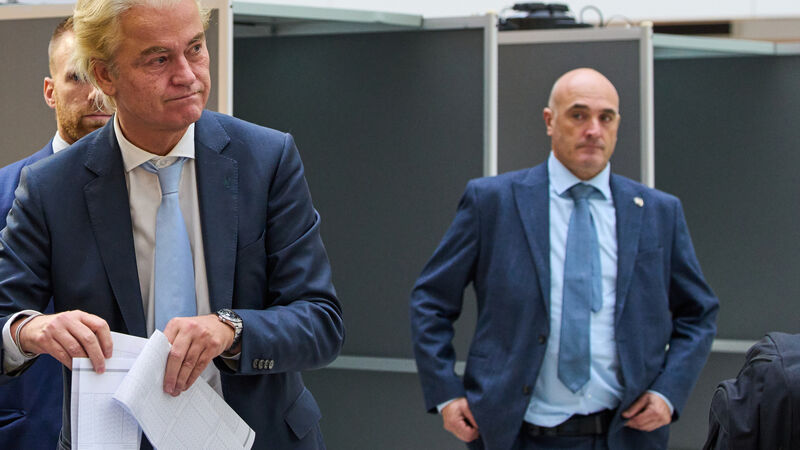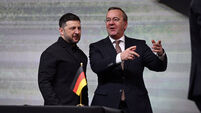Exit poll suggests Dutch election result too close to call

Far-right legislator Geert Wilders, second left, casts his vote at a polling station during general elections in The Hague, Netherland (Peter Dejong/AP)
An exit poll published immediately after voting ended in the Netherlands’s general election suggested the result is too close to call, with the centre-left D66 narrowly ahead of the far-right party of Geert Wilders.
The poll on Wednesday showed that D66 would win 27 seats, a rise of 18 compared to the 2023 election.











